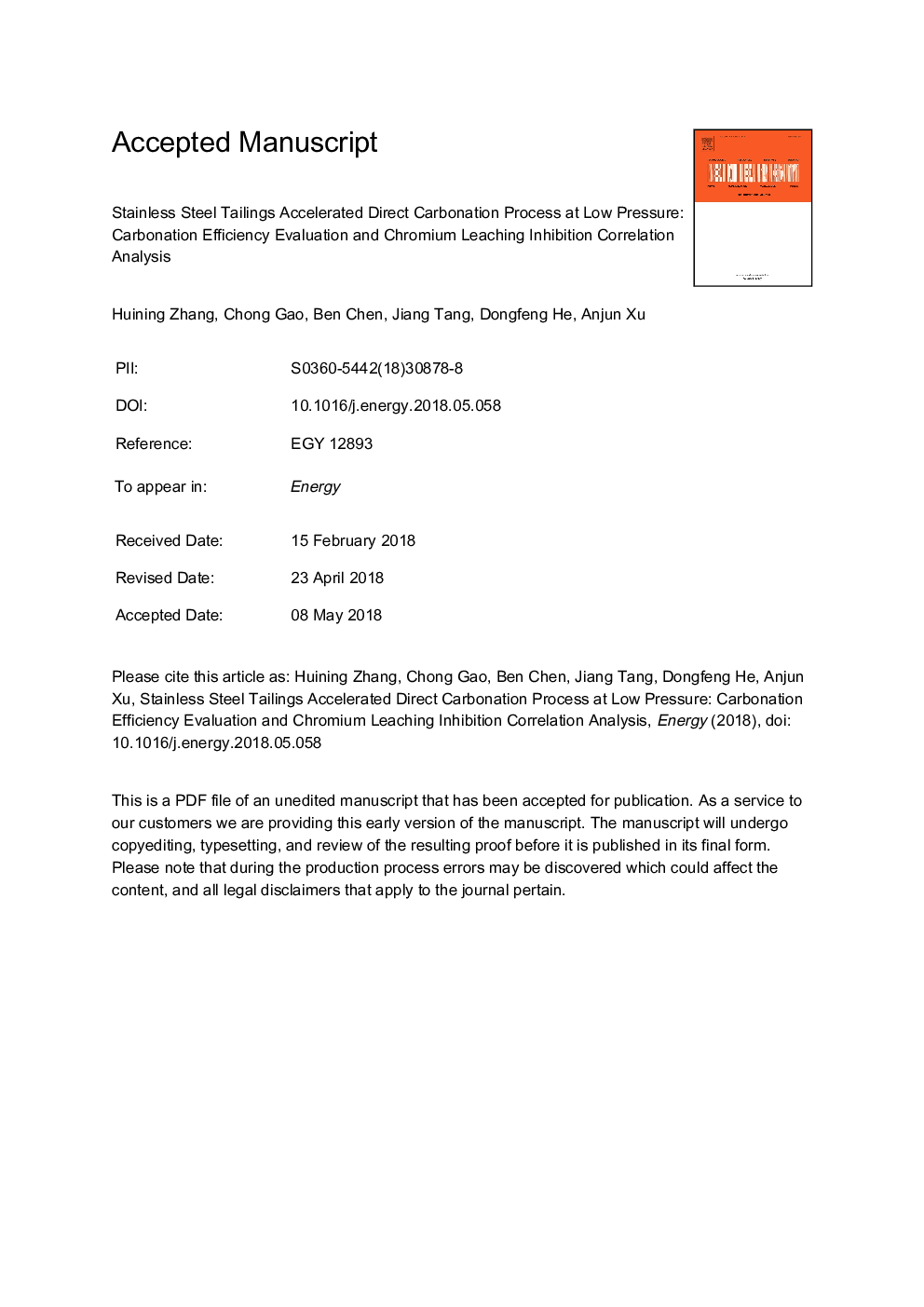| Article ID | Journal | Published Year | Pages | File Type |
|---|---|---|---|---|
| 8071494 | Energy | 2018 | 21 Pages |
Abstract
Chromium leaching from stainless steel tailings is an urgent problem risking of the environments, calcite integument of tailings by accelerated direct gas-solid carbonation process can be formed and the inhibition factor of carbonation degree on chromium leaching rate is discussed in detail. Stainless steel tailings accelerated direct gas-solid carbonation process is investigated at 300â¯Â°C-700â¯Â°C and 0.2-0.4â¯MPa, and the effect of temperature, reaction time, particle size and CO2 pressure on carbonation degree are analyzed by TGA-DSC, FTIR, SEM-EDS analysis. The results show that the maximum CO2 uptake obtained (8.2%), corresponding to 16% carbonation degree can be obtained when 48-75â¯Î¼m stainless steel tailings are carbonated for 90â¯minâ¯at 300â¯Â°C and 0.4â¯MPa. Tailings particle size, carbonation time, and carbon dioxide pressure display a positive relationship with carbonation degree, but carbonation temperature has a negative relationship. 48-75â¯Î¼m carbonated tailings with varied carbonation degree and original tailings are investigated for the inhibitory factor between carbonation degree and Cr leaching rate, when leaching process is at 60â¯Â°C for 90min on the condition that L/S ratio equals 20â¯ml/g. The results show the inhibitory factor is fitted by random function better, and the value decreases from 31.5% to 9.7%, when carbonation degree is from 2% to 8%, and then keeps stable, when carbonation degree is still increases from 8% to 14%, which illustrates that carbonation process as a better strategy of tailings innocuous treatment at high temperature is valid for restricting Cr leaching behavior.
Related Topics
Physical Sciences and Engineering
Energy
Energy (General)
Authors
Huining Zhang, Chong Gao, Ben Chen, Jiang Tang, Dongfeng He, Anjun Xu,
